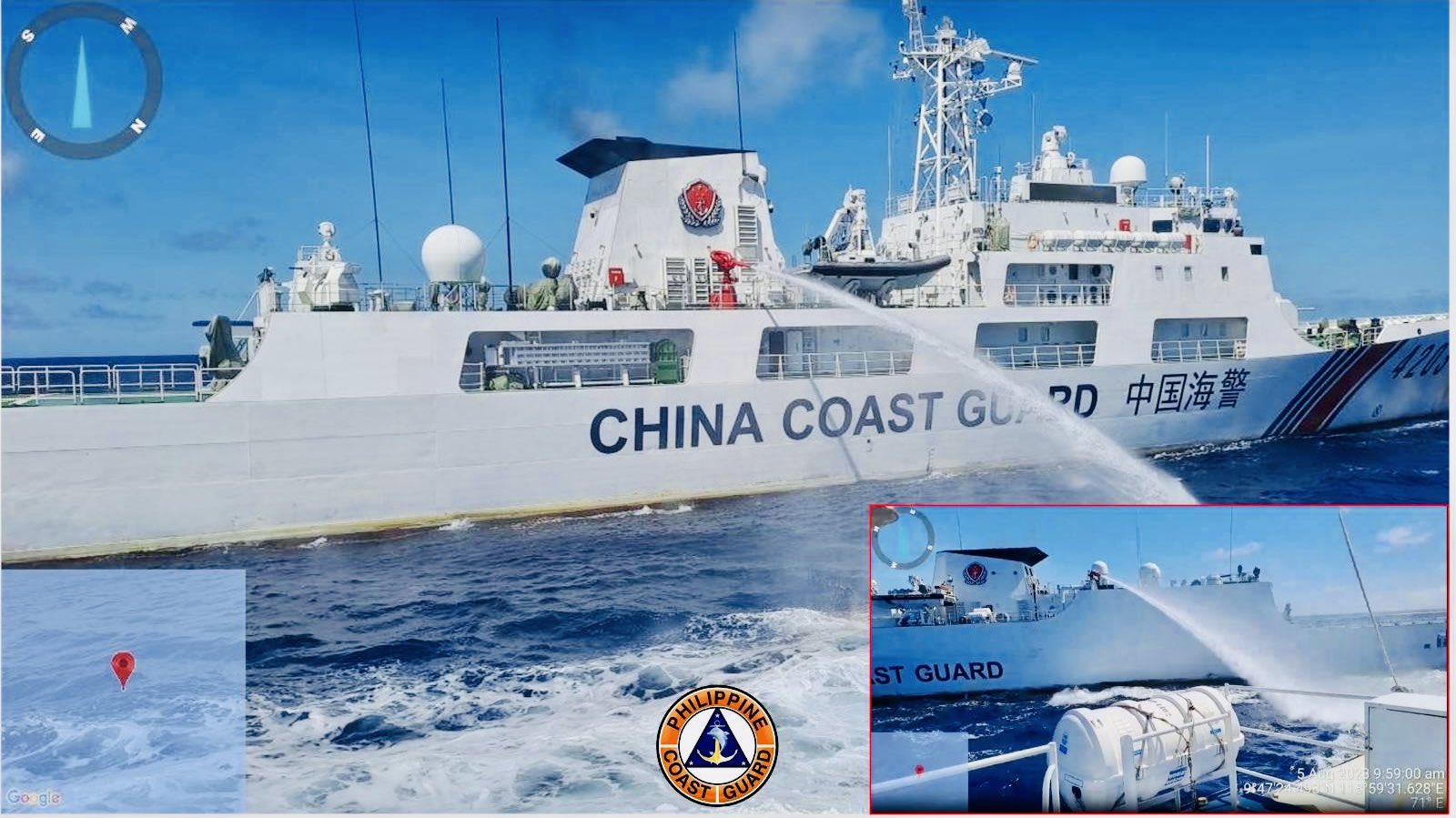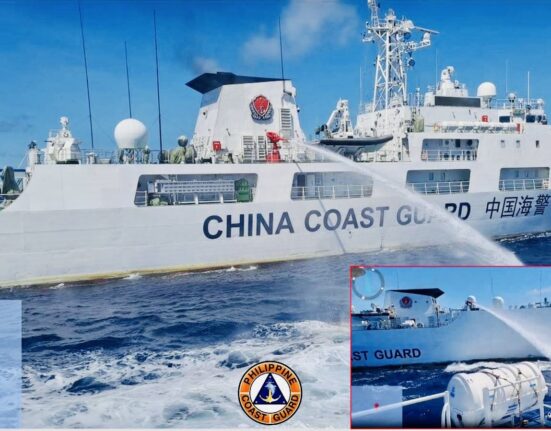THE Philippines accused the Chinese coast guard on Saturday of using water cannons to “obstruct” three government boats delivering provisions to Filipino fishermen near a reef off its coast.
The incident happened near the China-controlled Scarborough Shoal, a flashpoint between Manila and Beijing, which claims almost the entirety of the South China Sea.
The National Task Force for the West Philippine Sea said in a statement that “Chinese Coast Guard ships utilized water cannons to obstruct and prevent” government vessels from delivering fuel and food supplies to fishing boats.
The multi-agency task force said it “vehemently condemns the illegal and aggressive actions carried out by the Chinese Coast Guard and Chinese Maritime Militia”.
But Chinese state television said the country’s coast guard had used “control measures in accordance with the law” against the Philippine vessels that had “intruded” into waters around the shoal.
China snatched control of Scarborough Shoal from the Philippines in 2012 following a tense standoff.
Since then, Beijing has deployed patrol boats that Manila says harass Philippine vessels and prevent Filipino fishermen from reaching the lagoon, where fish are more plentiful.
Scarborough Shoal is 240 kilometres (150 miles) west of the Philippines’ main island of Luzon and nearly 900 kilometres from the nearest major Chinese land mass of Hainan.
Under the 1982 United Nations Convention on the Law of the Sea, which China helped negotiate, countries have jurisdiction over the natural resources within about 200 nautical miles (370 kilometres) of their shore.
‘Significant damage’
The incident drew international criticism of China and its coast guard.
US ambassador to Manila MaryKay Carlson condemned China’s “aggressive, illegal actions” against the Philippine vessels.
Japan’s envoy Kazuhiko Koshikawa expressed serious concern “about the dangerous actions” by the Chinese coast guard.
Videos released by the Philippine Coast Guard showed China Coast Guard ships shooting water cannon at Philippine Bureau of Fisheries and Aquatic Resources (BFAR) vessels and hitting them with powerful blasts of water.
One boat’s communication and navigation equipment sustained “significant damage”, the task force statement said.
Some Filipino crew also experienced “severe temporary discomfort and incapacitation” after Chinese vessels used what was believed to be a “long-range acoustic device”, it said.
The mission to distribute fuel and food to more than 30 fishing vessels near the shoal was “ongoing”, the task force said, accusing the Chinese coast guard of deploying inflatable speed boats to “drive away” the fishermen.
“To prevent the distribution of humanitarian support is not only illegal but also inhumane,” the task force said.
Aerial surveillance by the BFAR also showed a floating barrier had been reinstalled across the entrance to the shoal and was being guarded by Chinese boats, the Philippine Coast Guard said.
Filipino fishermen reported that the China Coast Guard installed the barrier early Saturday, the task force said.
That comes after Philippine coast guard personnel in September cut a Chinese-installed 300-metre-long barrier in the same area, setting it adrift and sparking a diplomatic row.
The Philippines and China have a long history of maritime incidents in the contested South China Sea, through which trillions of dollars of trade pass annually.
That is despite the Hague-based Permanent Court of Arbitration ruling in 2016 that China’s claims over the waters have no legal basis and its construction of artificial islands in disputed waters was illegal.
Beijing refused to take part in the proceedings and has ignored the judgement.
Vietnam, Malaysia, Brunei and Taiwan also have claims to the sea.









